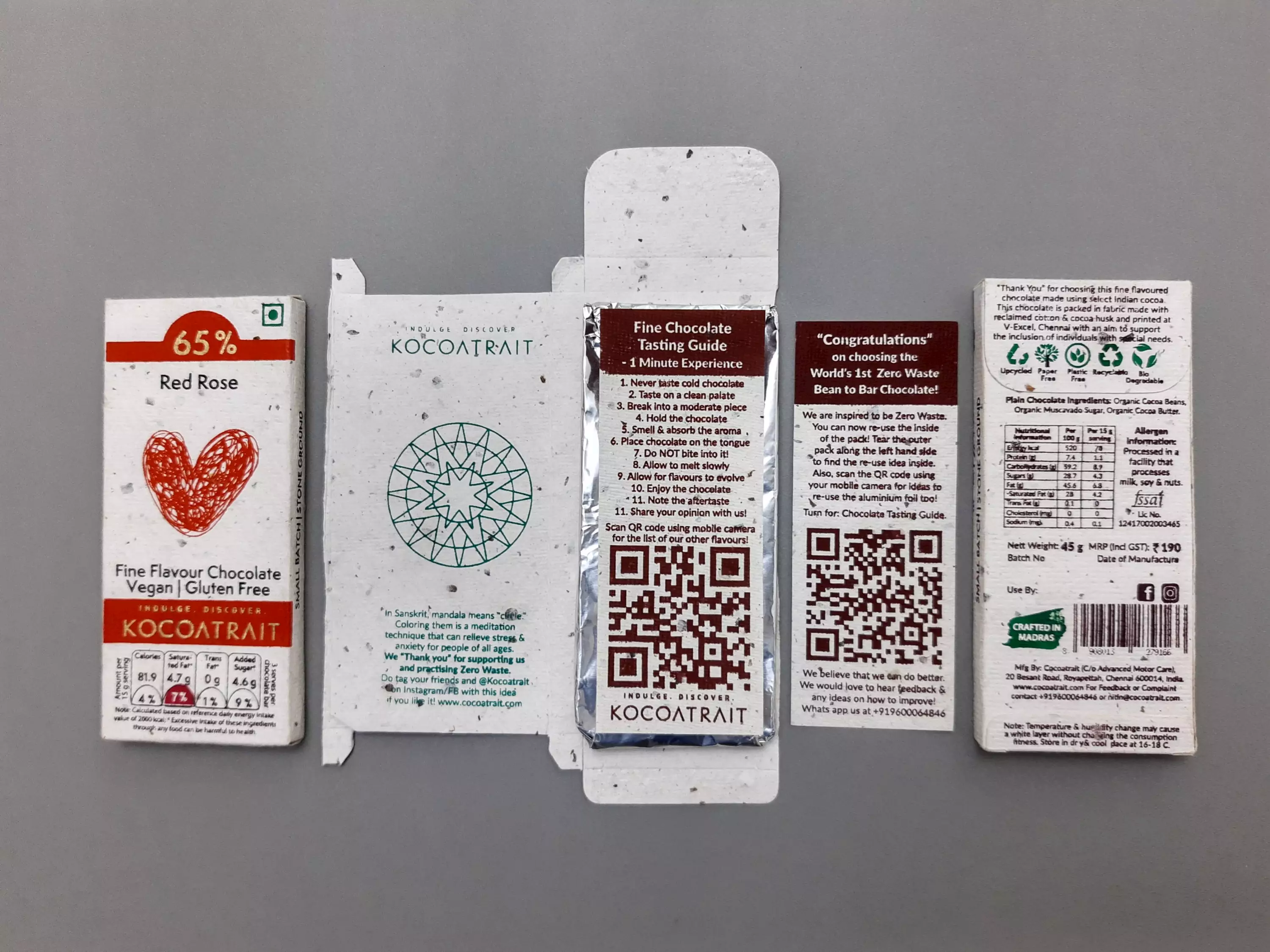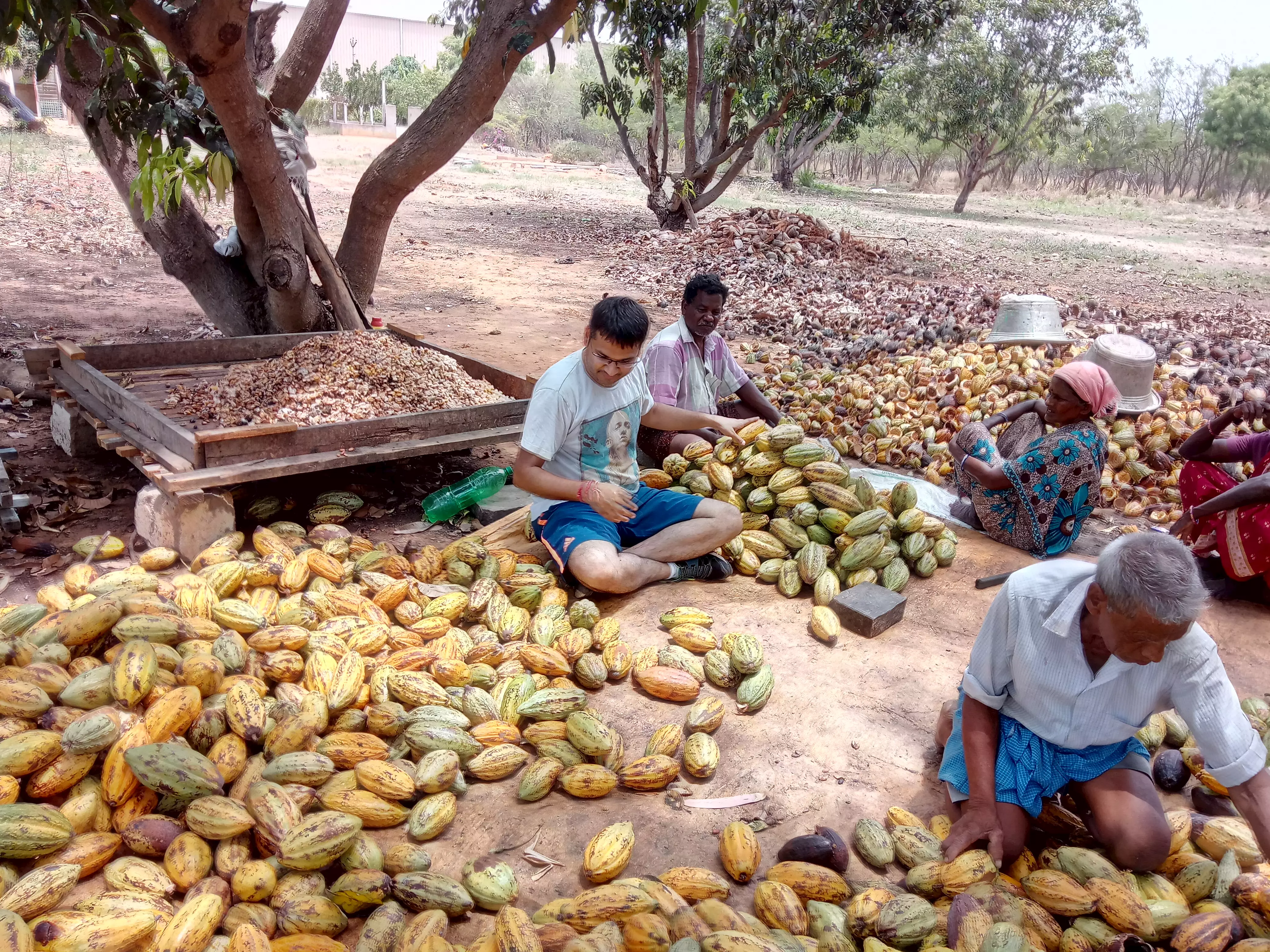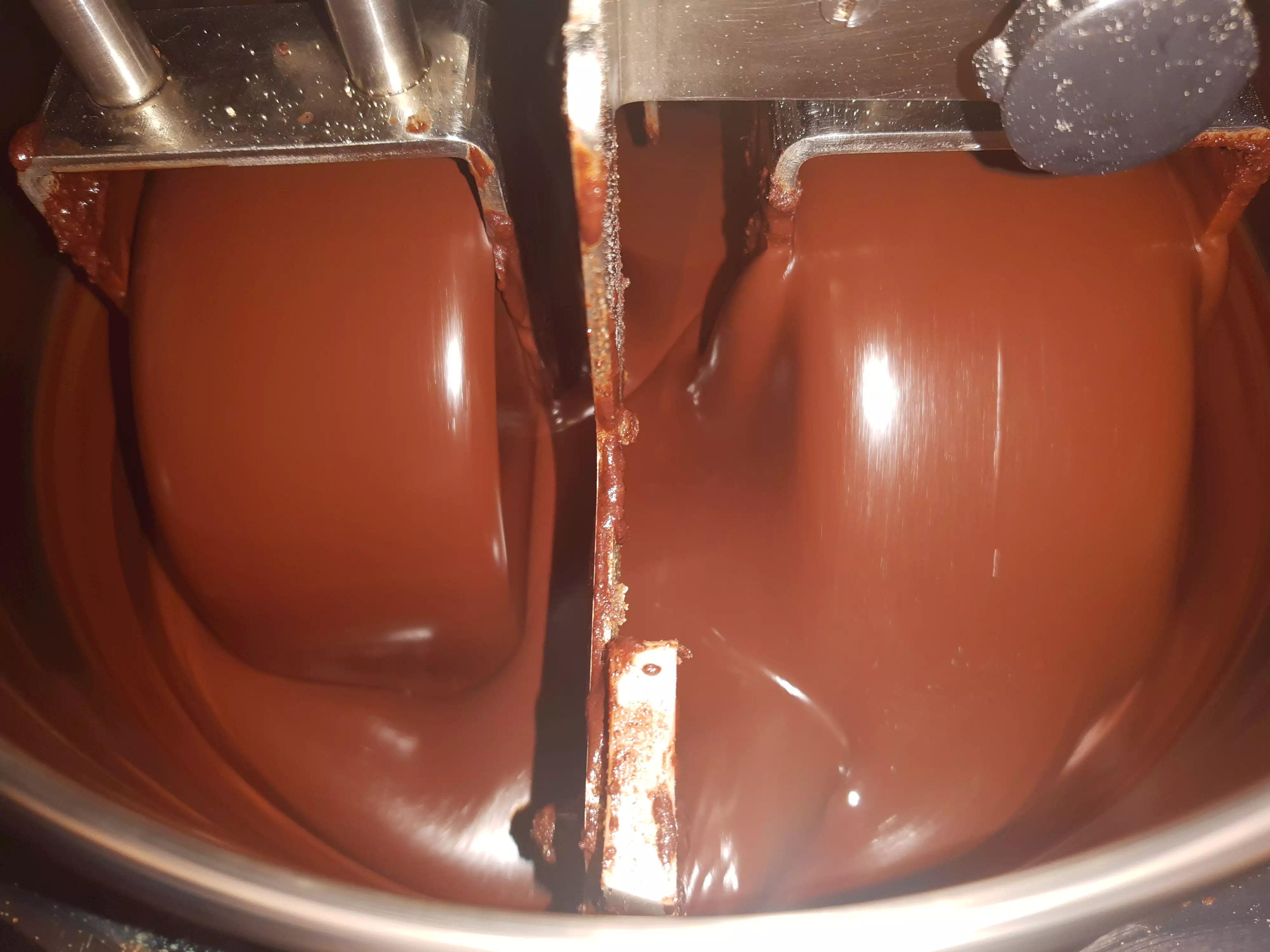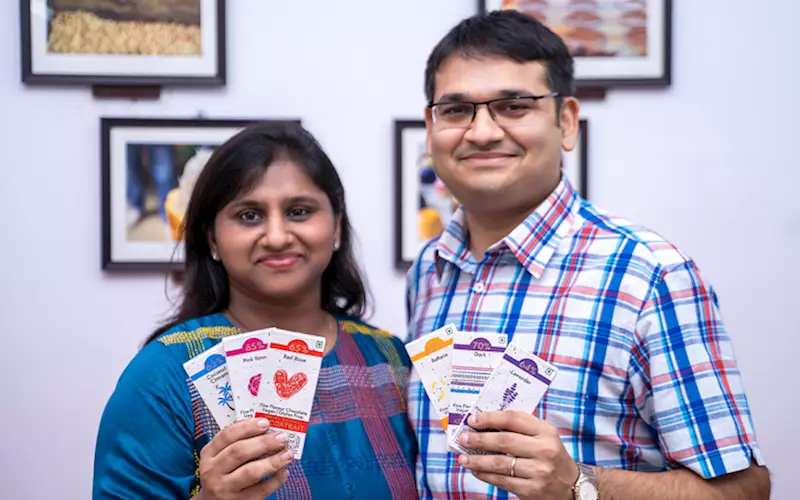Case Study: A promise of zero-waste from Kocoatrait - The Noel D'Cunha Sunday Column
Cocoatrait is on a path-breaking journey of being a zero-waste bean-to-bar chocolate label. Its chocolate brand, Kocoatrait is vegan, gluten-free and consciously employs sustainable packaging and manufacturing processes.
The Sunday Column explores the company’s journey through a conversation with the husband and wife duo of Poonam and Nitin Chordia
08 Dec 2019 | By Noel D'Cunha
Kocoatrait was conceived as a sustainable chocolate brand. It did not occur as an afterthought. Nitin Chordia, founder of Cocoatrait and his team set out some clear priorities. “We wanted to make it easy for consumers to adopt zero-waste and make the product relevant at an international level.”
The company made a conscious choice that the outer wrapper would be compostable and completely free of plastic, and the paper and inner wrapping to be completely recyclable. Chordia adds, “We also set out to minimise energy consumption in production and packaging, plus optimise the use of packaging material.”
Packaging Development
The outer packaging of Kocoatrait uses handmade paper made by reusing cocoa husks and cotton fibres. “We wanted to do our bit to revive the otherwise dying handmade paper industry. We supplied our cocoa husks and requested for collaboration to make a material firm enough for us to wrap our chocolate bars. After the first few attempts, we got a fabric which could be used,” says Chordia.
The printing process presented some challenges. Chordia explains, “The porosity of the material produced was different. We faced several issues but in the end, our patience and perseverance paid off.”

When considering the materials for the inner wrapping, preserving the nutritional value and shelf life were critical. The search zeroed in on pharmaceutical-grade aluminum foil. The chocolate bar size was also optimised to keep the trim waste of packaging material to an absolute minimum.
Water-based eco-friendly inks are printed using screen printing on the wrapper which eliminated the need for any plastic and polymer coatings. This according to Chordia is a first in the chocolate industry.
Sustainability practices also extended to the choices made in the manufacturing processes of the packaging. Chordia says, “We screen print each wrapper manually. This is done at V-excel Education trust which supports inclusion of citizens with special needs. No electricity is used during the screen printing process.”
Consumer Engagement
Consumer participation is key in driving zero-waste and Kocoatrait has deployed some innovative strategies to achieve this. To start with the inner side of the outer wrapper is also printed. This area is used to provide various engagement points by adding mandala art templates, health trackers and greetings.
Chordia explains, “Once the consumer slides out the chocolate, there is a high likelihood that he would reuse our wrapping fabric. Secondly, the wrapper is compostable. After use, the customer can decide to simply cut it into pieces and place it in their garden soil.
“Lastly, the aluminum foil that we use to add additional protection is laminate-free and reusable. We provide reuse instructions of the foil via a QR code. Our aim is to reduce post-consumer collection and disposal and encourage reuse.”
Chordia feels proud about their journey thus far. “We have always wanted bean-to-bar chocolates to be able to differentiate from mass-produced chocolates. We have achieved what nobody expected out of an Indian chocolate brand. This overall effort has ensured that India shall now be noticed globally in the bean-to-bar segment. We have already received multiple requests for collaboration from various countries and we hope that this becomes the template for the rest of the world to follow.”
About Cocoatrait
Based in Chennai, Cocoatrait is an initiative to bring the best fine chocolates to consumers in India They also operate a bean-to-bar chocolate making institute called Cocoashala and offer a three day bean-to-bar chocolate making program. Cocoatrait has partnered with IICCT, UK to administer the Chocolate Tasting Certification courses in India. Advanced Motor Care is the holding company of Cocoatrait which was founded by L Nitin Chordia, who is India’s first certified chocolate taster.

Making of Kocoatrait

Concept: Poonam Chordia (Kocoatrait) and L Nitin Chordia (Cocoatrait).
Designer: L Nitin Chordia.
Testing: Parikshan (for FSSAI related testing) and Central Institute of Plastics Engineering & Technology (CIPET) - The package does not contain plastic, but there’s a need to get it certified from the government in order to make the claims and CIPET is the organization that has tested it and confirmed that there is no plastic.
Screen Printing: V-Excel Educational Trust, Chennai along with their patrons.
Food Safety Standards

Choridia feels that the new FSSAI standards are a step in the right direction. “I just feel that the communication to the customer can be more explicit and more information should be made available to the consumer at the point of purchase using technology. This will help consumers make an informed decision.”











 See All
See All